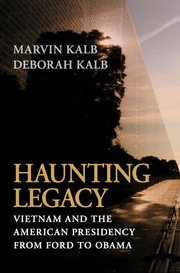Q&A with Ron Capps, writer, veteran, former diplomat, and founder of the Veterans Writing Project
 Friday, May 25, 2012 at 8:29PM
Friday, May 25, 2012 at 8:29PM Q&A with Ron Capps, writer, veteran, former diplomat, and founder of the Veterans Writing Project, which offers writing seminars to veterans, service members, and military families.
Q: What inspired you to start the Veterans Writing Project, and what role did your own experiences play?
A: My personal experience was one of the primary drivers to my founding the Project. I went to five different wars in ten years and did so with insufficient home or down time. I was treated for PTSD in Afghanistan in 2003, went to Iraq in 2004, and to Darfur in 2005. By 2006, amid the ongoing genocide in Darfur, I was at the nadir of a crushing PTSD relapse. I came very close to killing myself; I was actually interrupted in the act. After I was medevac’d home and my career was cut short, I started writing. Over time I realized that writing about the violence I saw and took part in helped me control the traumatic memories, and I wanted to help others do the same thing. Also, I used my VA benefits to go to graduate school and I wanted to make sure that I gave something back to the Americans whose tax dollars supported me. Giving away what I learned in school seemed a pretty efficient way of doing that.
Q: You have written about your experiences with PTSD. With so many veterans suffering from that same condition, what therapies or strategies are effective in helping them?
A: Well, first, I’m a writer and so I won’t give medical advice. But as a survivor of PTSD, my advice to others is usually this: If you need help go get it; don’t wait, don’t be afraid to ask for help, don’t try to sort this stuff out on your own. Service members are trained from their first day in the military to always work as a team. But so many of us come home from the war and try to sort out our problems alone. This is the worst possible thing that can happen. Reservists are especially susceptible to this phenomenon because when they come home they are often completely outside the safety net of the unit. There isn’t anyone who they can lean on, anyone who they think understands what they’ve been through.
Q: Do you work with veterans from all wars and all age groups, or are some wars particularly represented?
A: We are open to any veteran regardless of when or where they served. In our seminars we see a lot of Vietnam veterans and veterans from Iraq and Afghanistan. But we also have Cold War veterans, service members who never deployed outside of CONUS [Continental United States], and we’ve had a couple Korean War veterans come through. I should add that we are also open to family members. I think they are too often left out of the circle when organizations provide services to veterans. We invite spouses, parents and children. We want to get the information out to as many people as we can.
Q: Could you describe a few of the writers and their projects, and what their accomplishments mean to you?
A: A few of our participants have really stood out, but I’ll just mention two. We had a Vietnam veteran who came up from Florida to attend our seminar at the George Washington University (in Washington, DC). He wanted to simply write down his story for his family, but he was having trouble with the structure. We were able to give him ideas about narrative structure and voice that he said were helpful. I understand that he’s still hard at work getting a 30-year military career on the page.
The other was a young Iraq veteran who had some health issues from TBI [traumatic brain injury] and PTSD. He came through our program at Walter Reed National Military Medical Center as a skeptic; he said he didn’t read and didn’t write, but he was willing to try anything to help himself get better. He left the program convinced of the healing value of writing (and more broadly, the creative arts). He’s now working on a novel.
As for me, I’ve said all along in this endeavor that if what we do in the VWP helps one person get through the night a little more easily, that it’s worth all the hard work. These two stories keep me going when the little struggles to keep this thing going start to pile up.
Q: What does your organization have planned for this Memorial Day?
A: We’ll hold a public reading by some of our participants and some other veterans at 1pm on Saturday May 26th at the Navy Memorial (701 Pennsylvania Ave NW, Washington DC). Plus several of us will take part in the Memorial Day Writer’s Project readings near the Vietnam Memorial on Monday.
Q: Anything else we should know about?
A: We’re always looking to expand our work. Anyone with questions or who is interested in bringing us out to teach in their town or on their base can find us on Facebook, or on the web at www.veteranswriting.org. We are a very small organization and we rely on individual supporters both in terms of volunteers--we could really use some help improving our websites--and in terms of funding. We don’t charge participants in our seminars, but there are still costs involved in terms of getting people to the seminars, providing child care when necessary, creating the curriculum, and all the logistics and administrative costs involved.
Interview with Deborah Kalb, co-author of Haunting Legacy.

Ron Capps


Reader Comments